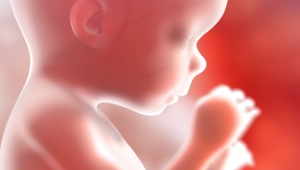
May the God of hope fill you with all joy and peace as you trust in Him…Romans 15:13
Spring break used to be called Easter break, or Easter vacation. I, for one, am glad that the two are now separated in their identity. The term “spring break” has become identified more as a college level Mardi Gras.
What does this have to do with cancer? If you have ever been diagnosed with cancer then you know as far as cancer is concerned there is no break – spring or otherwise. Cancer sets your schedule; it has no respect for the plans you have made. Cancer will tell you when you get a break.
What does cancer have to do with Easter; likewise, what does Easter have to do with cancer?
Everything!
Cancer has to do with a healing plan. Easter has to do with the healing plan.
Cancer causes you to ask, what is the meaning of life? Easter answers this question, and points the way to the meaning of life. Easter says, “I am the Way…” John 14:6
Cancer changes your life. It divides your life into a time before and a time after diagnosis; and a time before and a time after treatment. Easter split the calendar. For the whole world time is measured as a time before and a time after Easter.
Cancer is about needing hope, healing, and inner peace. Easter is about providing hope, healing, and inner peace.
What is Easter all about? Easter is about promises.
Easter starts with a promise of everlasting life.
“For God so loved the world that he gave his only begotten son, that whoever believes in him should not perish but have everlasting life.” John 3:16
And Easter ends with a promise of eternity without sorrow or pain.
“There shall be no more death, nor sorrow, nor crying. There shall be no more pain, for the former things have passed away.” Revelation 21:4.
Cancer is a time of soul-searching. Many of those who are in the after treatment time in their journey with cancer will tell you that cancer made them realize they were a little shaky in their faith. Some will admit that cancer shattered their trust in God.
Having faith is being able to believe in the promises of God.
You may wonder; is God trustworthy?
As a young man, Joshua was literally a slave. He heard God’s promises of salvation from slavery and believed them. He heard God’s promise to never leave him or forsake him and believed Him. He saw God’s promises fulfilled. At the end of his life, he said to a nation (and to you and me), “You know, with all your heart and soul that not one of all the good promises the Lord your God gave you has failed. Every promise has been fulfilled; not one has failed.” Joshua 23:14
Easter is about promises and hope. Hope propels us into the future. Hope is being able to dance to the music of the future. To have hope you need to answer one question for yourself: what is my why? Why is tomorrow important to you?
Please share this Easter message with anyone you know that has in the past, or is now undergoing treatment for cancer.












